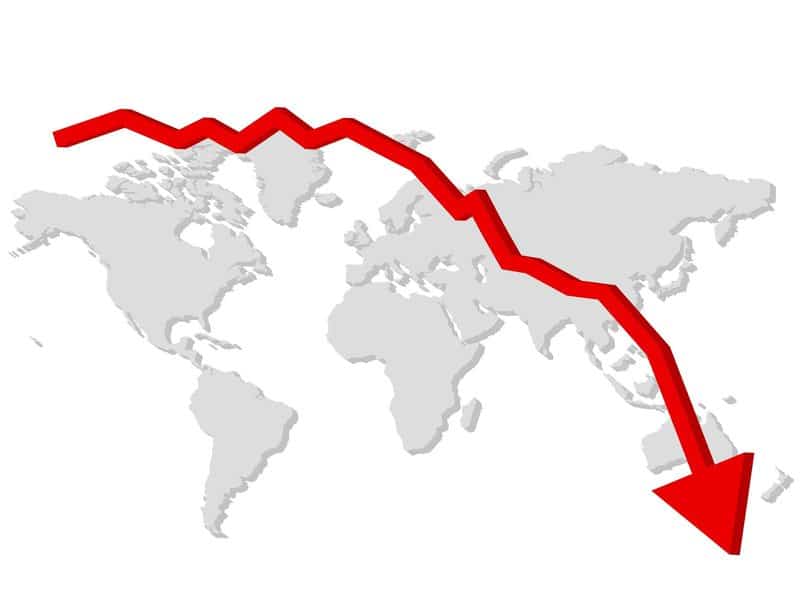As you already know, the Coronavirus (COVID-19) is an infectious disease caused by a recently discovered coronavirus. It was first identified in December 2019 in Wuhan, China. It continued to spread across the globe, resulting in an ongoing pandemic. Mild symptoms and asymptomatic cases of coronavirus led to a rapid spread of the disease. Now, the whole world is facing lost lives, lost income, as well as lost opportunities.
The coronavirus outbreak has created a complicated situation and heavily impacted the trade show industry. This is the first time when hundreds of exhibitions, conferences, and trade shows have been canceled or postponed worldwide.😞
We can expect that more and more trade shows and events will continue to be canceled as the virus continues to spread. But, of course, this is for our own safety. If we want to improve the current situation, we must follow the safety measures. However, all these cancellations are taking a huge financial toll on the events industry.
Cathy Breden, executive vice-president of the International Association of Exhibitions and Events said that “This disease is presenting the exhibitions and events industry with an unprecedented global challenge”.
Financial impact
According to the last research done by the Events Industry Council and Oxford Economics, the global business events industry managed to generate $2.5 trillion in 2017. Currently, it’s quite clear that this will not be possible this year.
Companies that were supposed to participate in trade shows, as well as businesses that are involved in organizing the shows, are suffering under the ongoing wave of cancellations or postponements. The true impact and cost of this pandemic on the event industry won’t be fully known for many months but it is already enormous (we’re talking about billions of dollars).

If the trade shows are rescheduled, organizers may experience serious financial issues because they may not be able to book again a specific venue for their preferred date. Therefore, most likely, they will lose the money spent on the venue and on many other services.
When trade shows are canceled, exhibitors and attendees also have to cope with some issues such as the possibility of losing the money spent on booth deposits and event registration. Also, if a trade show is canceled in advance because of coronavirus prevention measures, people should at least get their money back for renting space at the show. However, there are many types of clauses in contracts so not everyone will recover their money. Other losses could include the money spent on marketing materials, staff, etc. Not to mention the fact that companies will miss the opportunity to meet with the attendants face to face and create business connections that would have had the potential to be converted to sales.
Will those affected be compensated?
So now those who’ve suffered losses are wondering who will actually compensate them. Will the companies lose the money they’ve invested in preparing for the trade shows? How will the trade show industry be affected in the future? Will there be lawsuits to help get back some of the money? There are still no answers to these questions so, for now, we have to be patient with this difficult situation.
Besides all these losses and costs, there are so many other expenses involved. The cancellations of trade shows and all sorts of events are creating huge domino effects across many industries: airlines, hotels, marketing, restaurants, etc. Just think about the travel and accommodation costs – in this case, unfortunately, there looks to be little chance of refunds. In the end, we have to acknowledge the negative financial impact that this virus has on the trade show industry.
Status of trade shows
Whether you’re an organizer, exhibitor or attendee, it’s essential to know the status of the major trade shows and other events around the world. One of the most important trade shows in the tech industry is called Mobile World Congress. So when this year’s expo in Barcelona was canceled in early February, everybody started to worry about the next events. This was only the beginning that set off the initial alarm bell for many people working in the trade show industry, which led to a wave of cancellations or postponements.
The Energy Storage Europe trade fair which was supposed to take place in March in Düsseldorf was postponed; Baselworld (Switzerland), the watch fair, announced that the show set up for this month is rescheduled for January 2021; Facebook also canceled its Global Marketing Summit scheduled for March in San Francisco. There are also companies like Apple that decided to hold the Worldwide Developers Conference online for the first time (in June).
Cosmoprof North America postponed its Las Vegas trade show for Sept. 20 to 22 – the show was initially scheduled for June; Natural Products Expo West postponed its annual trade show that was supposed to take place in March, in Anaheim, Calif. (the new date is not known yet); Luxe Pack Shanghai, a high-end packaging trade show, was also postponed – from April to July 7 and 8. The last one we’re gonna mention is Cisco Live (Melbourne), which was set to take place in March, but it was canceled.
What can be done now or in the future? How can the trade show industry recover from this situation?
A solution is to reimagine the events in creative ways, like online or virtual shows. Some people already did that. Even if it’s not the ideal situation, we have to adapt. So a virtual/online trade show can be a good substitute for the real, face-to-face experience. But for this to be possible we need to have better infrastructure in order to organize successful virtual events. We have to make them more interactive.
Moreover, we have to be more prepared when it comes to insurance and contract clauses. In the future, governments should offer financial support for affected businesses in the trade show industry. People need to look forward beyond this pandemic. And to keep on planning because everything will get back to normal, so we need to be prepared for that. The industry will recover but it will take some time, we have to be confident.
Now it’s more important than ever to support those who work in the trade show/events industry. As we’ve previously mentioned, a solution that would benefit both sides – organizers/ exhibitors/companies whose activity is related to the trade shows and participants – is to plan for future shows. For example, if you want to prepare your booth for an upcoming show, check out our Tradeshow Booth Layout Template in order to quickly and easily produce mock-ups showing possible booth layouts.















